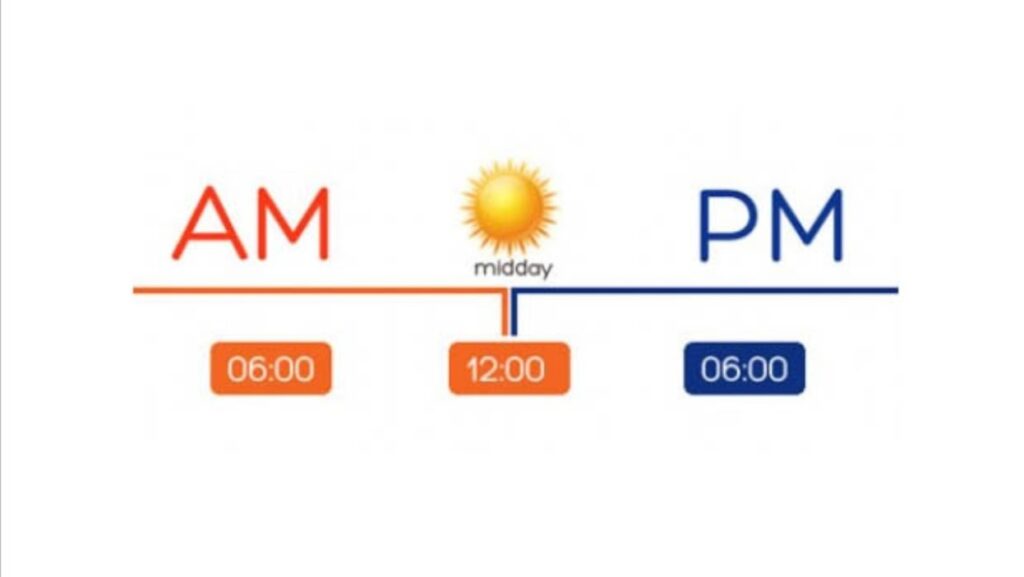AM and PM are abbreviations used to denote the two halves of a 24-hour day in the 12-hour clock system.
AM (Ante Meridiem)
- Meaning: “Ante Meridiem” is Latin for “before midday.”
- Time Frame: AM covers the time period from midnight (12:00 AM) to just before noon (11:59 AM).
- Usage: It’s used to indicate the time from the beginning of the day until just before noon. For example, 7:00 AM is early in the morning.
PM (Post Meridiem)
- Meaning: “Post Meridiem” is Latin for “after midday.”
- Time Frame: PM covers the time period from noon (12:00 PM) to just before midnight (11:59 PM).
- Usage: It’s used to indicate the time from midday until just before the end of the day. For example, 7:00 PM is in the evening.
Historical Context
The 12-hour clock system, which uses AM and PM, has its roots in ancient Egyptian timekeeping. The Egyptians divided the day into two 12-hour periods, which eventually influenced Roman and then medieval European timekeeping systems. The Latin terms “Ante Meridiem” and “Post Meridiem” were adopted during the medieval period to distinguish between the two halves of the day.
Practical Use
In modern usage, AM and PM help avoid confusion in daily activities by clearly indicating whether a time is in the morning or the evening. This is particularly important in contexts like scheduling appointments, public transportation timetables, and broadcasting schedules.
24-Hour Clock System
Some regions and professions prefer the 24-hour clock system, also known as military time, which runs from 00:00 to 23:59. This system eliminates the need for AM and PM, reducing ambiguity. For instance, 14:00 in the 24-hour clock system is equivalent to 2:00 PM in the 12-hour system.
Examples
- 7:00 AM: Early morning
- 12:00 PM: Noon
- 1:00 PM: Early afternoon
- 6:00 PM: Evening
- 11:00 PM: Late at night
Understanding AM and PM is essential for accurate timekeeping and effective communication in daily life, ensuring clarity and consistency in expressing time.

